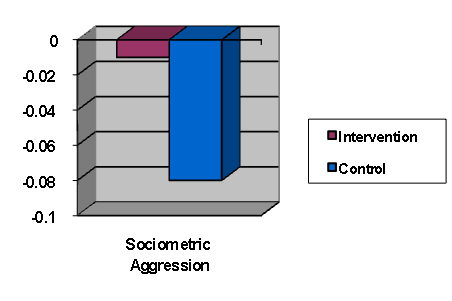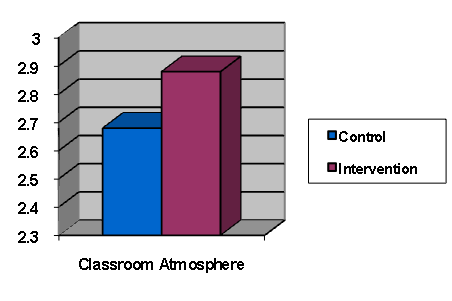The PATHS® Curriculum Outcomes in the Fast Track Project
Fast Track was a large, randomized trial of a multifaceted intervention designed to reduce serious aggression and conduct problems. It was conducted in four American locations (Seattle, WA, Nashville, TN, Durham, NC, rural Pennsylvania), and in each location there were approximately 14 schools that were randomized equally to intervention vs. comparison conditions. Schools were chosen because they were in neighborhoods of high crime and economic decline. The PATHS® curriculum served as the universal intervention and was integrated with five other targeted programs that were designed to be used only with children showing early, significant behavior problems.
The PATHS® curriculum, in conjunction with other Fast Track interventions, was conducted over three successive years with three cohorts of first graders, resulting in a total of 198 program classrooms and 180 matched comparisons across the three cohorts. These classrooms included approximately 7,000 children. The percentage of children receiving free or reduced lunch was 55% and the mean percentage of ethnic minority children attending the schools was 49%. There were no demographic differences between intervention and control schools. Although there were substantial differences between sites in the degree of risk related to their school locations, there was considerable risk in the average school.
Findings in First Grade
Findings at the end of first grade indicated improved social adaptation at multiple levels in schools in which the PATHS® curriculum was utilized. Relative to classrooms in the control schools, children in classrooms that received the universal intervention showed lower mean levels of peer-nominated aggression and hyperactivity and higher numbers of peer-nominated prosocial students. Furthermore, classrooms that received the universal intervention were rated as having more positive classroom atmospheres based on ratings of independent observers, and teachers rated their students as lower in disruptive behavior (Conduct Problems Prevention Research Group, 1999).
PATHS® Universal Intervention
End of First Grade (1 Year of Intervention)
Children who received the PATHS® curriculum rated their classmates as significantly less aggressive than did children in randomized comparison classes. (Conduct Disorders Prevention Research Group, 1999)
Independent observers rated PATHS® classrooms as having a significantly more positive classroom atmosphere. (Conduct Disorders Prevention Research Group, 1999)
Findings In Third Grade (CPPRG , 2010)
A second study with the Fast Track schools studied 2937 children of multiple ethnicities who remained in the same intervention or control schools for grades 1, 2, and 3. The study involved a clustered randomized trial involving sets of schools randomized within three U.S. locations.
The results at the end of third grade provide evidence of PATHS® effectiveness for both promoting social competence and reducing aggressive behavior problems. Teachers rated students in PATHS® schools as having lower rates of disruptive behavior problems and higher rates of academic engagement and social competence. Children who exhibited the highest rates of baseline aggression (by teacher report) before intervention and received the intervention showed the largest reductions in aggression by the end of third grades. Peer ratings indicated that boys in PATHS® schools had lower rates of peer-rated aggressive and hyperactive-disruptive behavior. These findings reflect consistent, but modest effects of the universal-level prevention activities on behavior, for children who remain in the same school for three years of sustained exposure. Notably, along with effects on social behavior, these findings demonstrate improved classroom behavior and teacher perceptions of more effective academic engagement, including increased self-control and on-task behavior.
This is the largest study of its kind indicating the efficacy of school-based, universal interventions during the elementary school years for both the promotion of competence).

